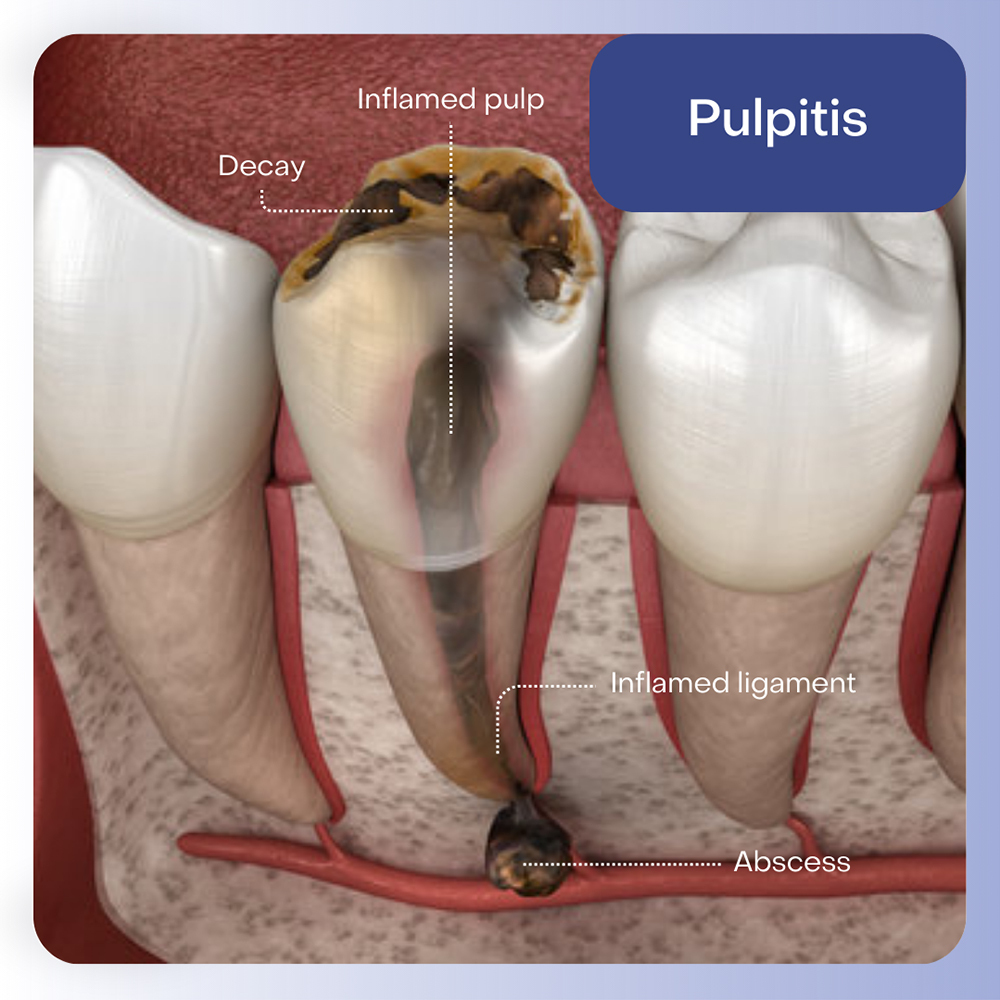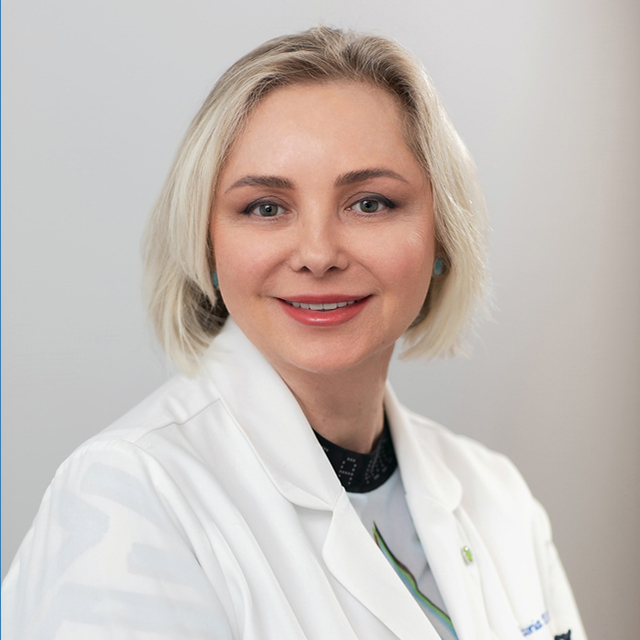Table of contents
 The dental pulp is the innermost part of your tooth, containing nerves, blood vessels, and connective tissues. It is essential when a tooth develops, but an adult tooth can survive without a dental pulp. Pulpitis usually occurs because of an irritation or infection.
The dental pulp is the innermost part of your tooth, containing nerves, blood vessels, and connective tissues. It is essential when a tooth develops, but an adult tooth can survive without a dental pulp. Pulpitis usually occurs because of an irritation or infection.
Bacteria in your mouth can enter the tooth through a crack or cavity, penetrating the dentin surrounding the pulp and eventually causing infection. Inflammation develops as your body tries to fight the infection.
There are two types of pulpitis which are:
The main signs of an inflamed dental pulp is toothache or noticing the tooth has become more sensitive. The degree of pain will depend on the extent of the inflammation.
When you visit our NJ dental office, we can test the tooth to see if you have reversible or irreversible pulpitis.
If you have reversible pulpitis:
If your pulpitis is irreversible:
When pulp necrosis is present, the tooth nerve dies. Therefore, you may feel no sensitivity to anything hot, cold, or sweet. However, your tooth will probably hurt when we tap it.
Your tooth is protected by hard enamel, but if it is damaged, it can result in pulpitis. Damage to a tooth can occur due to:
Diagnosing pulpitis is very straightforward.
If you have reversible pulpitis, then treatment may be very straightforward. Usually, it is a question of removing any signs of tooth decay and ensuring the tooth is properly sealed with an ordinary dental filling.
Irreversible pulpitis requires more extensive treatment as the pulp tissue must be removed. Options include:
If the dental pulp is infected, we might prescribe antibiotics to prevent the infection from worsening, especially if you can’t receive treatment immediately. However, antibiotics are not a treatment for pulpitis.
The best way to prevent this condition is by practicing good oral hygiene.
In its early stages, pulpitis is very treatable. However, without professional dental care, it can worsen and result in an infection. We strongly recommend that our patients contact us for professional advice if a tooth feels uncomfortable, sensitive, or painful. Prompt treatment can make all the difference between restoring the tooth easily and needing more complex care like root canal therapy or, in the worst case, tooth removal.

My name is Victoria Kushensky. I am a general dentist dedicated to remaining at the forefront of my field. Combining compassionate care with extensive knowledge, I offer cosmetic and general dentistry services as well as advanced root canal treatments.
I earned my Doctor of Dental Surgery (DDS) degree from the esteemed New York University College of Dentistry. Throughout my career, I have honed my skills in various dental procedures, ensuring effective treatment for each patient’s unique needs. I prioritize patient comfort and understanding, taking the time to thoroughly explain procedures and address any questions.
More about Dr. KushenskyMy NJ Dentist: Victoria Kushensky, DDS
385 Prospect Ave Suite 304
Hackensack, NJ 07601
(201) 298-8000